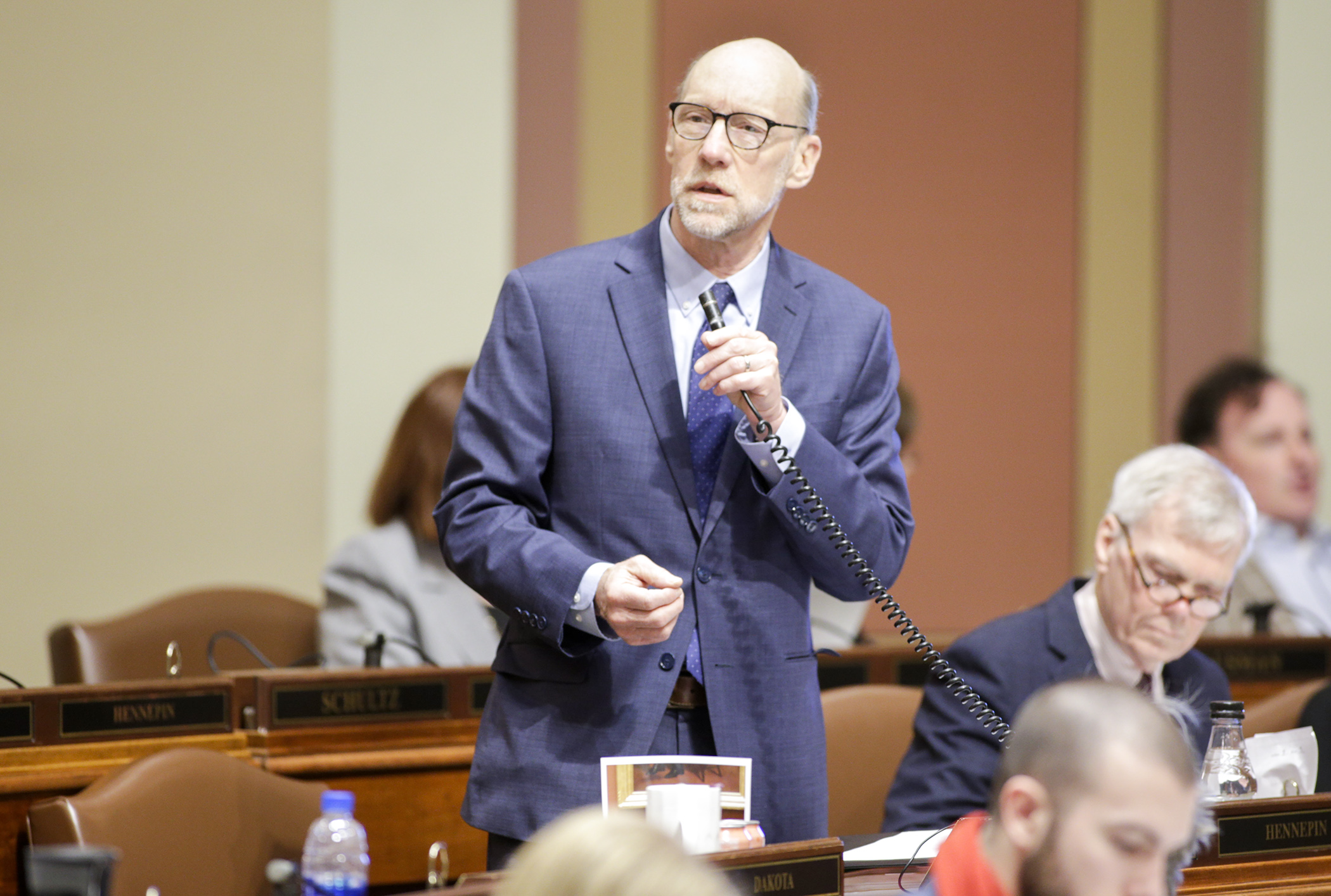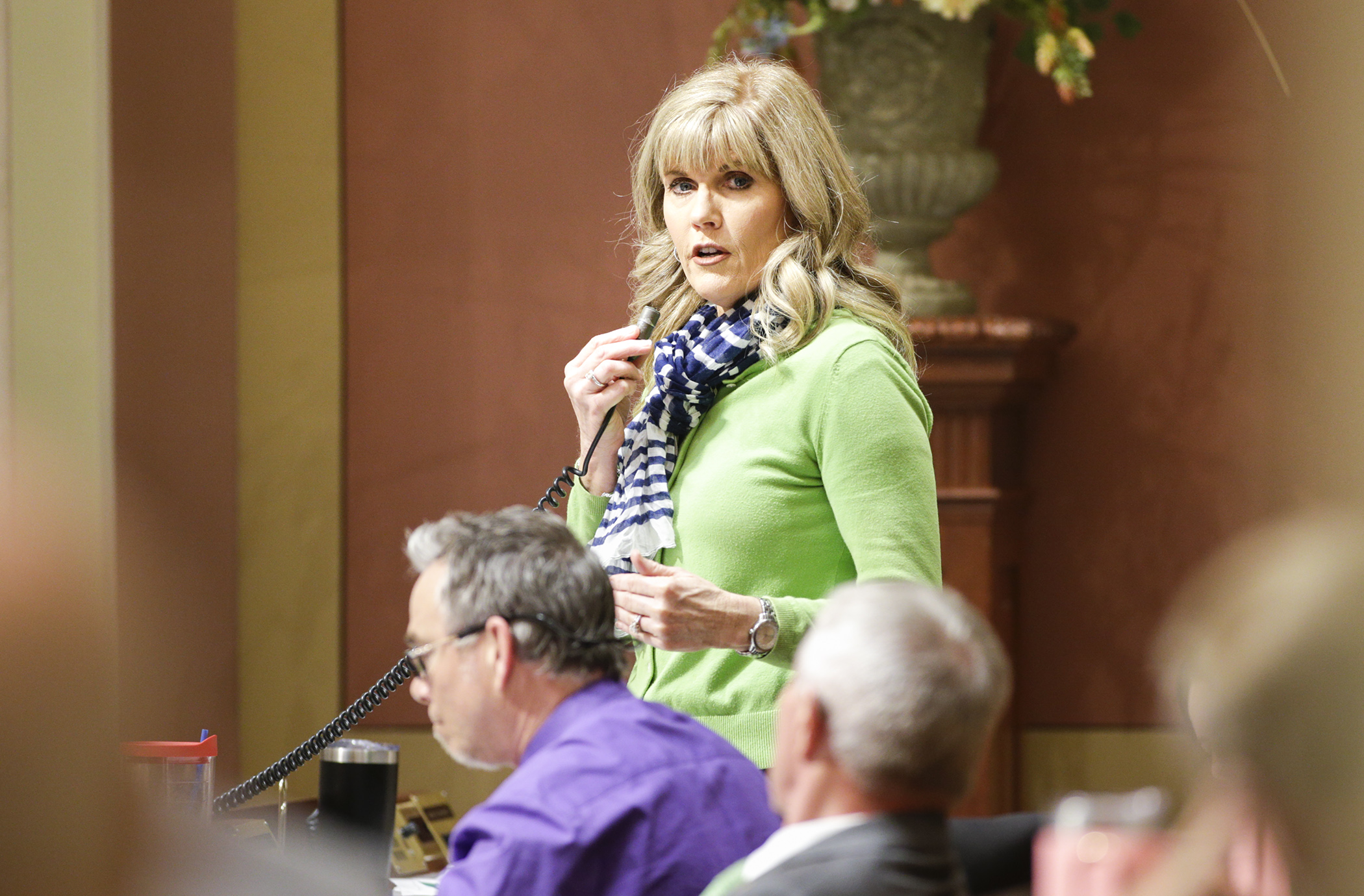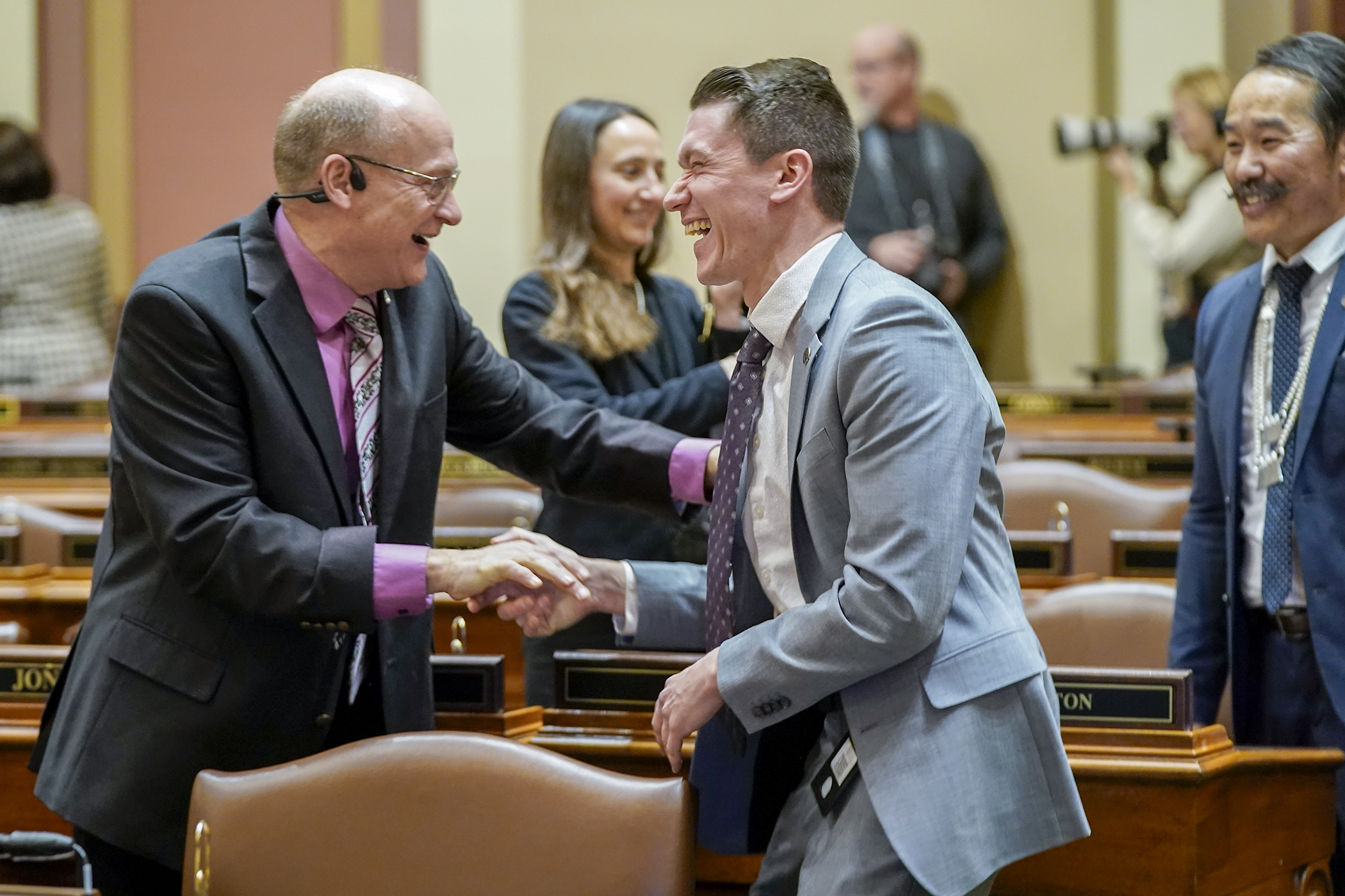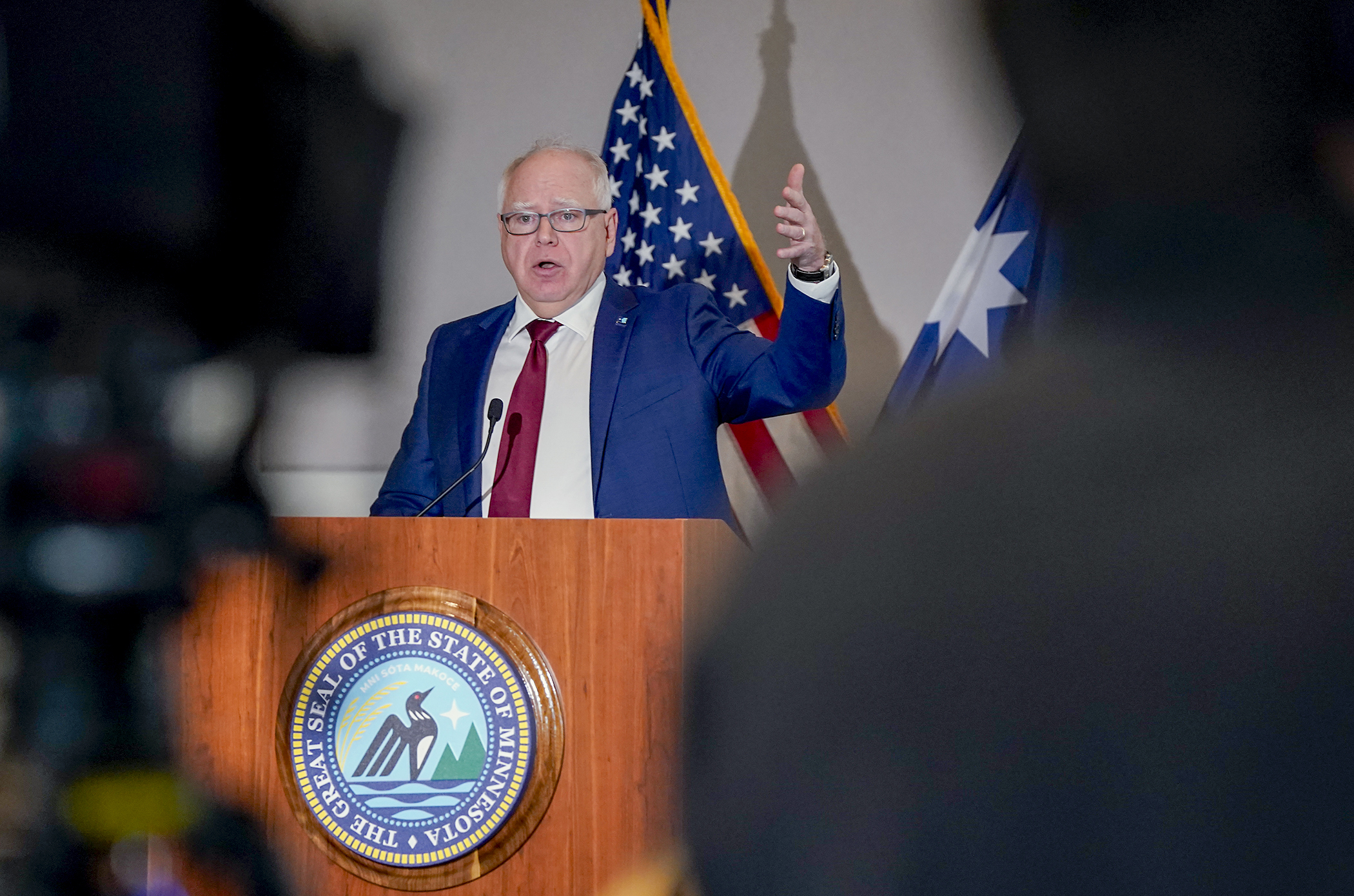House gives passing grade to omnibus education bill with $900 million in new investments

House members sprang back into legislative action Tuesday, following the Easter/Passover break, with an 11-hour debate on the omnibus education finance bill.
Sponsored by Rep. Jim Davnie (DFL-Mpls), HF2400, as amended, would provide $900 million in new E-12 education investments in the upcoming biennium, and includes a variety of policy provisions. Passed 78-55, it now heads to the Senate, where Sen. Carla Nelson (R-Rochester) is the sponsor.
The proposal’s most significant appropriation would be used to increase the general education funding formula by 3 percent in Fiscal Year 2020 and 2 percent in Fiscal Year 2021, for a general education funding increase of $520 million over the base budget.
“We don’t believe that school districts should have to turn to property taxes just to fund the basics,” explained House Speaker Melissa Hortman (DFL-Brooklyn Park). “We think there should be strong state funding so that we can provide these opportunities for children all over the state, regardless of whether or not their local community can pass property tax increases.”
Republican legislators, including House Minority Leader Kurt Daudt (R-Crown), shared opposition toward the overall spending target, saying it will result in tax increases despite the state’s current surplus, and took issue with the funding inequities between school districts — particularly between Minneapolis and suburban and rural districts.
“You are making promises to teachers, to parents, to schools that you have no ability to keep, and I think that’s incredibly irresponsible,” Daudt said. “And what I mean by that is if you’re not successful in raising billions of dollars of new taxes you don’t have any way to fund the increases for schools that are in this bill.”
Special education funding and program efficiencies
Other new investments during the next biennium include a $118 million increase for special education, $47 million to maintain the current number of prekindergarten seats and $24 million for school safety and security funding.
“We looked at the significant cost drivers that are challenging our school districts and we invest in freezing the underfunding of special education,” Davnie said. “And we reformed the formula to support those districts big and small experiencing particular struggles with special education.”
Common ground was found in some areas, including special education, when Rep. Glenn Gruenhagen (R-Glencoe) successfully offered an amendment that, as amended, would create a special education working group to review programming delivery and costs. The group would also review the use of medications intended to modify the mood and behavior of students with individual education programs.
“We really need to get to the bottom of this, in my opinion,” Gruenhagen said.
Contention over comprehensive sexual education policy
Republican legislators opposed several policy provisions including modifications to a school district’s referendum authority and changes to the teacher licensure system. Additionally, a provision that would require the Department of Education to develop, and help school districts implement comprehensive sexual health education curricula was met with vocal resistance and several amendments.
 Rep. Peggy Scott offers one of her 10 amendments to HF2400, the omnibus education finance bill, during the April 23 House Floor debate. Photo by Paul Battaglia
Rep. Peggy Scott offers one of her 10 amendments to HF2400, the omnibus education finance bill, during the April 23 House Floor debate. Photo by Paul BattagliaCurrent sexual education standards, instruction and benchmarks are developed and delivered on a district-by-district basis. Advocates say that what’s currently being taught isn’t adequate, and lacks information on consent, sexual health, and isn’t inclusive of LGBTQ students.
“If we provide accurate information to young people they have more information to make good decisions about their sexual behavior and then reduce their risky behaviors. We can trust our youth with this information,” said Rep. Todd Lippert (DFL-Northfield), who sponsors the original legislation.
The proposal would require the content to be age appropriate and medically accurate, with instruction beginning in elementary school continuing through high school. School districts or charters could opt out of the sexual education model endorsed by the department, and implement their own model that meets the requirements.
“Districts and parents are still in the driver’s seat with this legislation,” Lippert said.
Opponents questioned appropriateness of the curriculum and said it diminishes parental responsibility and reduces a school district’s autonomy to choose sexual health programming. Rep. Peggy Scott (R-Andover), and others, shared strong opposition toward Planned Parenthood potentially having input on curriculum development and implementation, as the bill allows for outside experts to be used.
The bill would maintain parents’ ability to opt their child out of the classes. Scott offered a successful amendment that would aim to add another level of transparency in the process by requiring districts make the sexual health materials available to parents.
Rep. Peggy Bennett (R-Albert Lea) unsuccessfully offered an amendment that would have stricken the policy from the bill, explaining that it should be left entirely up to the districts and parents to determine the sexual education curriculum.
“One-size-fits-all government mandated sex education is really a one-size-fits-nobody,” she said. “It’s a sensitive subject that should be left up to local control as to what to teach and how to teach it.”
Related Articles
Search Session Daily
Advanced Search OptionsPriority Dailies
Full House convenes for first time in 2025, elects Demuth speaker
By Tim Walker DFL, Republicans convene with a quorum for the first time in 2025 session after agreeing to a power-sharing deal.
DFL, Republicans convene with a quorum for the first time in 2025 session after agreeing to a power-sharing deal.
Walz proposes slimmed-down 2026-27 state budget, sales tax changes
By Tim Walker This is an odd-numbered year, and so the Legislature is constitutionally required to craft a budget to fund the state government for the next two fiscal years.
Gov. Tim Walz...
This is an odd-numbered year, and so the Legislature is constitutionally required to craft a budget to fund the state government for the next two fiscal years.
Gov. Tim Walz...